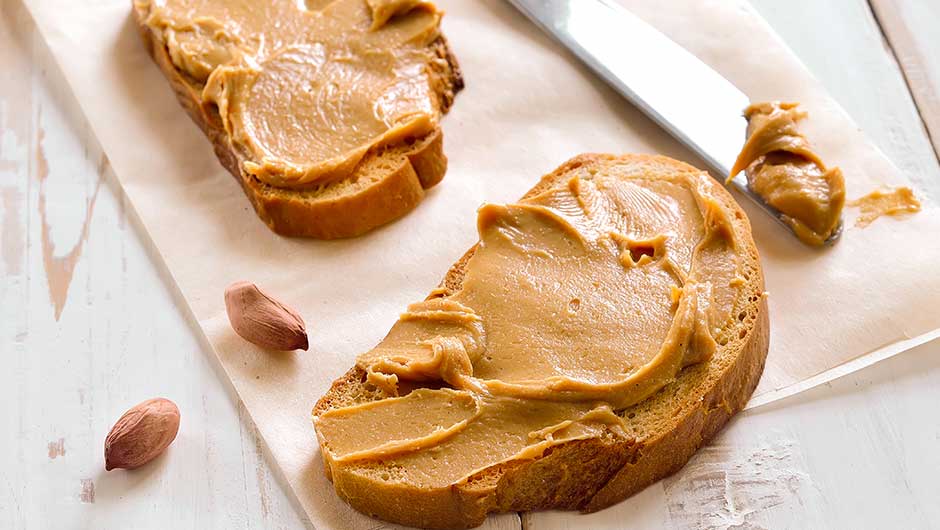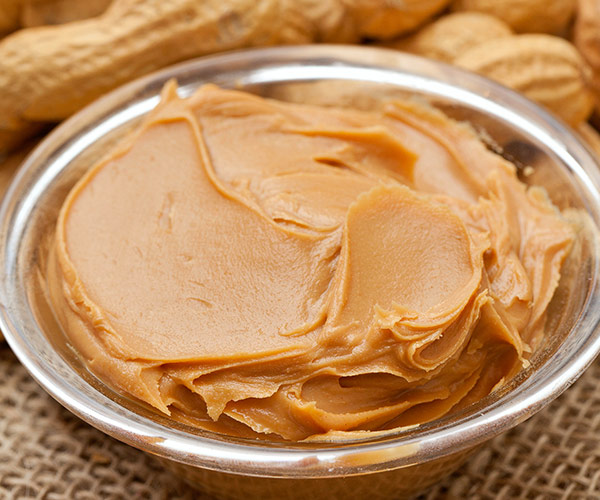
Peanut butter makes a good snack on its own, and it's also an excellent addition to sandwiches, smoothies and certain fruits and veggies. But, the protein-packed nut butter actually isn't the best option out there, especially for those who are watching their calorie and sodium intake. Here's why you shouldn't eat peanut butter, like, ever:
[Photos: Shutterstock]

1. It's high in calories
One serving (2 tablespoons) of peanut butter contains 188 calories, according to the USDA.
2. It's easy to overeat
If you're adding peanut butter to a sandwich or a smoothie, you need to be careful of how much you're actually using. It's easy to lose track of how many tablespoons you've scooped out once you get started, which then leads to overconsuming it.
3. There's sugar in there, too?
Popular store-bought brands use white sugar to make their peanut butter, which is highly refined and makes your blood sugar rise.
4. Peanuts aren't always the main ingredients
Not only do you need to be wary of the sugar content in your peanut butter, but you also need to be mindful of the oils it's made with. "They’re a mixture of peanuts, sugar and various oils. To keep the peanut spread thick at room temperature, manufacturers add artery-clogging saturated or trans fats. When shopping, scan the ingredients for 'partially hydrogenated oil,' 'hydrogenated oil' or 'palm oil' -- those are ones you want to skip," according to The Food Network.
5. Reduced fat peanut butter isn't good for you either
You may think that opting for a reduced fat peanut butter is healthier, but it's actually loaded with more sugar and sodium than full-fat peanut butters.
6. It can have a lot of sodium, too!
Make sure you're looking at the nutrition facts of your favorite peanut butter carefully, because it could contain anywhere between 22-200 milligrams of sodium!
7. Don't choose a "peanut butter spread"
Most store-bought peanut butters are actually considered "peanut butter spreads." If you're trying to be healthy, opt for a "peanut butter," which is "defined as being 90% peanuts with only 10% allowed for seasoning and stabilizing oils," according to MyFitnessPal. "Peanut butter 'spread' does not meet this qualification. Manufacturers have more leeway to add unnecessary ingredients."
8. Natural isn't always the best choice either
A natural peanut butter should only contain peanuts and salt. But, most store-bought brands actually contain additives and hydrogenated oils, making it unhealthy.
9. "No stir" is a no-no
Most people think that they want their peanut butter to be "no stir," but that just means that the brand has added partially or fully hydrogenated fats or palm oils to prevent its natural oil from rising to the top of the jar.